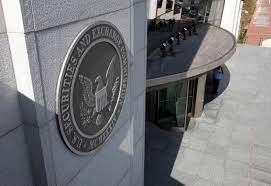SEC Joins DOJ in Probe of Ericsson ISIS Bribery Payments

Ericsson is having a tough time. First, in 2019, Ericsson settled FCPA charges with the Justice Department and the SEC for a total of $1 billion (with a B). Second, Ericsson had an independent compliance monitor appointed for a three-year term under its deferred prosecution agreement.
And then — last year, Ericsson was notified by DOJ that it failed to conduct a proper internal investigation in Iraq because it failed to disclose additional misconduct to DOJ, most of which centered on bribery payments made to ISIS terrorists to permit Ericsson to transport equipment and avoid possible attacks.
In an SEC filing, Ericsson disclosed it is the subject of an SEC investigation stemming from an internal company investigation into employee misconduct in Iraq from 2011 to 2019 and payments to ISIS terrorist.
DOJ has another opportunity to resolve the Ericsson matter to confirm prior policy statements highlighting a tough stance on recidivists — those defendants that have multiple violations of the FCPA or violated deferred or non-prosecution agreements.

DOJ’s recent enforcement actions reflected inconsistent application of its new policy. In a recent post, I highlighted DOJ’s failure to act against Tenaris despite the fact that it was a two-time violator of the FCPA. DOJ declined to prosecute the second case approximately ten years after reaching a non-prosecution agreement with Tenaris.
DOJ is lining up against Ericsson to bring a major enforcement action for violating their 2019 deferred prosecution agreement by failing to disclose bribery conduct in Iraq involving illegal payments to ISIS. Last year, DOJ announced that Ericsson violated its deferred prosecution agreement by failing to disclose deficiencies in its prior internal investigation. Specifically, DOJ claimed that Ericsson failed to provide certain documents and factual information about bribery conduct.
The alleged violations focus on Ericsson’s conduct in Iraq. In its internal investigation, Ericsson identified multiple violations of its controls but did not discover any employee who was directly involved in the financing of terrorist organizations.
Ericsson’s bribery conduct occurred over a 17 year period, beginning in 2000 and continuing to 2017. The settlement statement of facts focused on five countries — Djibouti, China, Vietnam, Indonesia and Kuwait.

Ericsson used third-party agents and consultants to make bribery payments to government officials and managed off-the-books slush funds to cover bribes. Ericsson engaged agents and paid them pursuant to fake invoices.
In the 2019 settlement, Ericsson paid DOJ a criminal fine of more than $520 million and agreed to pay the SEC a civil fine of $540 million.
In March 2021, DOJ alerted Ericsson of its multiple breaches of its settlement agreements for failing to disclose to the government that it paid bribes to ISIS to gain access to transport routes in Iraq.
















1 Response
[…] Source link […]